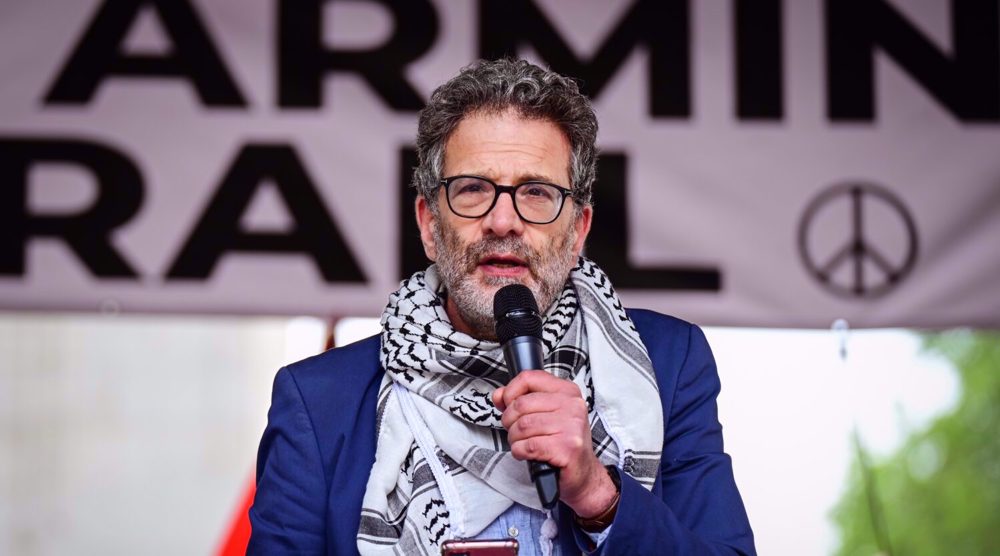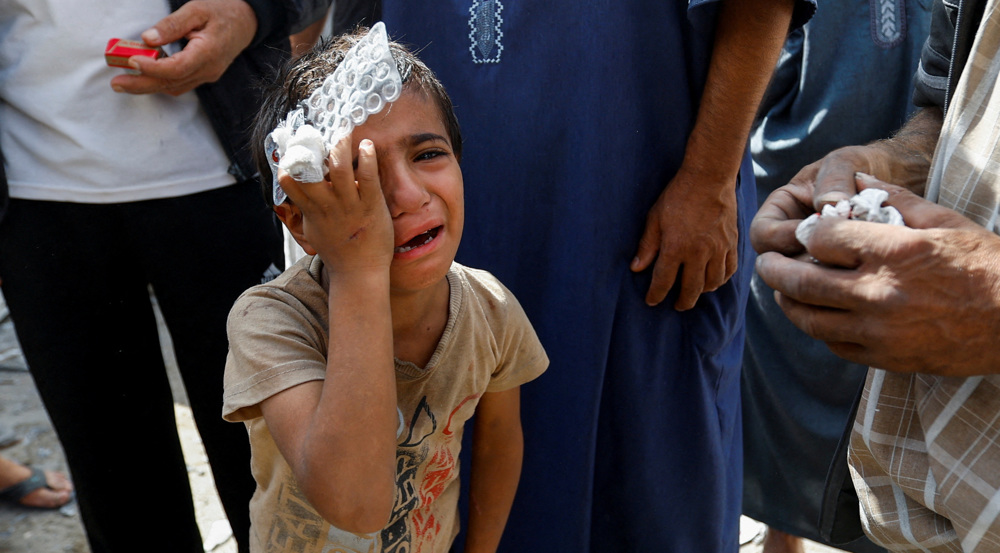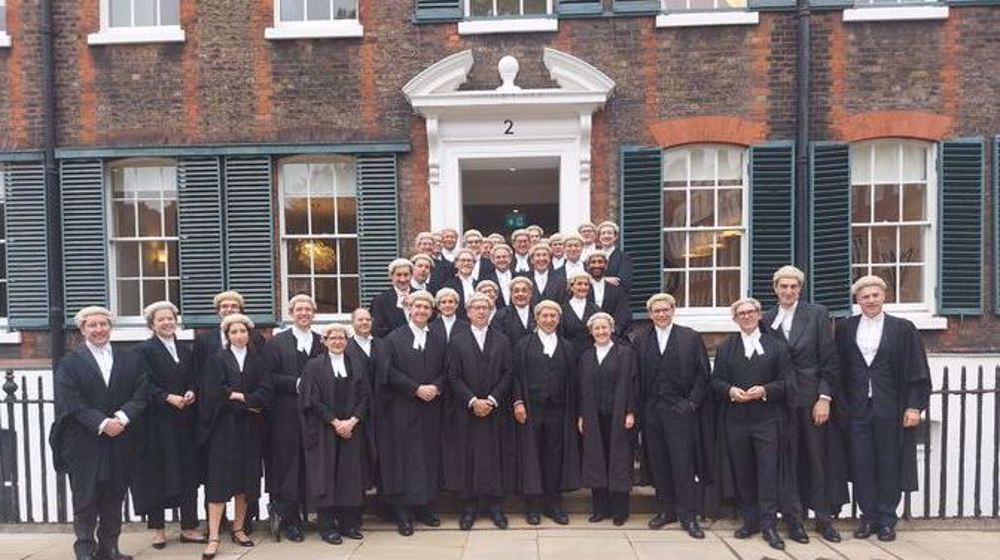May's party set to lose majority in UK election: Exit poll
As voting closes across the United Kingdom in the 2017 general election, an exit poll shows the country could be heading for a hung parliament, throwing Prime Minister Theresa May's Brexit plans into disarray.
The ruling Conservative Party is set to come first in the vote, but it will lose its overall majority, the poll for the BBC, Sky and ITV showed on Thursday night.
The Conservatives were set to win 314 seats, a loss of 17 seats, in the 650-member parliament followed by the main opposition Labour Party on 266, a gain of 34, according to the poll.
The poll put the Scottish National Party (SNP) on 34, the Liberal Democrats on 14, Plaid Cymru on three and the Greens on one.

According to BBC, some 76 seats appeared too close to call.
'Britain on a knife edge'

It is not not clear whether May, who had called a snap election in April in order to bolster her position before going into two years of negotiations with the European Union about Britain’s departure from the bloc, has a chance of surviving as prime minister.
"Britain on a knife edge," screamed the headline of the Daily Mail. And the tabloid Sun newspaper described the possible election result as "MAYHEM".
The British pound fell initially by more than two cents against the US dollar but it later recovered some ground.
"A hung parliament is the worst outcome from a markets perspective as it creates another layer of uncertainty ahead of the Brexit negotiations and chips away at what is already a short timeline to secure a deal for Britain," said Craig Erlam, an analyst with brokerage Oanda in London.
Earlier, British voters started to cast their votes in the high-stakes election, following a fierce campaign that saw the Conservative Party lose support to Labour.

Over 40,000 polling stations across the country opened on Thursday morning and closed at 10: 00 pm local time.
More than 46 million people were eligible to vote in what was the fourth major poll in the UK over the past three years, following the 2014 Scottish independence referendum, the 2015 general election, and the 2016 Brexit vote.
May was the first of the party leaders to vote on Thursday in the general election at a polling station in her constituency in Maidenhead, Berkshire. She was accompanied by her husband, Philip. She greeted reporters and photographers with a cheery “hello” as she arrived.
Corbyn casts his vote

Labour leader Jeremy Corbyn cast his vote shortly afterwards at Pakeman Primary School in Holloway, north London, in his Islington North seat. He smiled, waved and spoke to voters, when he emerged from the polling station.
“Thank you very much, all of you, for coming here today. It’s a day of our democracy. I’ve just voted. I’m very proud of our campaign. Thank you very much,” he said.
Lib Dem, UKIP leaders vote
Liberal Democrat leader Tim Farron voted at Stonecross Manor Hotel, Kendal, in his Westmorland and Lonsdale constituency, while Paul Nuttall, the leader of the UK Independence Party (UKIP) cast his vote in Congleton, Cheshire.
SNP leader votes in Scotland

Nicola Sturgeon, the current First Minister of Scotland and the leader of the SNP, voted with her husband Peter Murrell at their polling station at Broomhouse Community Hall, in east Glasgow, in Scotland, braving heavy rain.
She said she was “feeling good” and gave a thumbs-up to photographers before going inside the hall. “We’re focused today on getting out the vote. Voting SNP is the only way to ensure strong voices for Scotland, so I’m feeling good and hoping the weather improves as well.”

Missing voting forms
The Election Day began with a bombshell report by The Independent about hundreds of postal votes that had gone missing.
Apparently, around 400 postal voting forms issued by Plymouth City Council had failed to reach their destination, a matter that was under investigation by Royal Mail.
The council said it had to reissue "around 370 replacement ballot packs" to those who had contacted them about their missing votes. Others with the same problem were urged to contact the officials immediately.
The election was held nearly a year after 52 percent of Britons voted to leave the European Union. The previous Parliament got dissolve on June 3.
May had said an early election would bolster the UK’s position in talks over Brexit and was in the country’s national interest. Despite this, she had repeatedly said in the past that she would not seek a new election before 2020.

Influential figures like former Prime Minister Tony Blair have argued that May made the call because she thought the Labour Party was in a disadvantaged situation.
- To get the latest news on the campaign, visit our UK General Election page.

Palestine Solidarity Campaign director on trial

BBC blasted for pulling documentary on Gaza children after Israel lobby pressure

Top judge censures Britain’s Keir Starmer over his anti-Palestinian stance
'Shocking attack on free expression': Canadian politician slams arrest of pro-Palestine activist
West Bank Palestinians fear Gaza style destruction as Israel escalates raids
Hamas: Ibrahimi Mosque massacre testament to Israel’s criminal policy
Trump eyes Ukrainian rare earth minerals in exchange for military support to Kiev
Six Gaza children, including newborn girl, die of cold weather as Israel blocks aid
Iran rules out nuclear talks with US amid ‘maximum pressure’ campaign
Israeli tanks roll into West Bank first time in 20 years as prelude to forcible annexation
VIDEO | Trump wants Ukraine's mineral wealth








 This makes it easy to access the Press TV website
This makes it easy to access the Press TV website